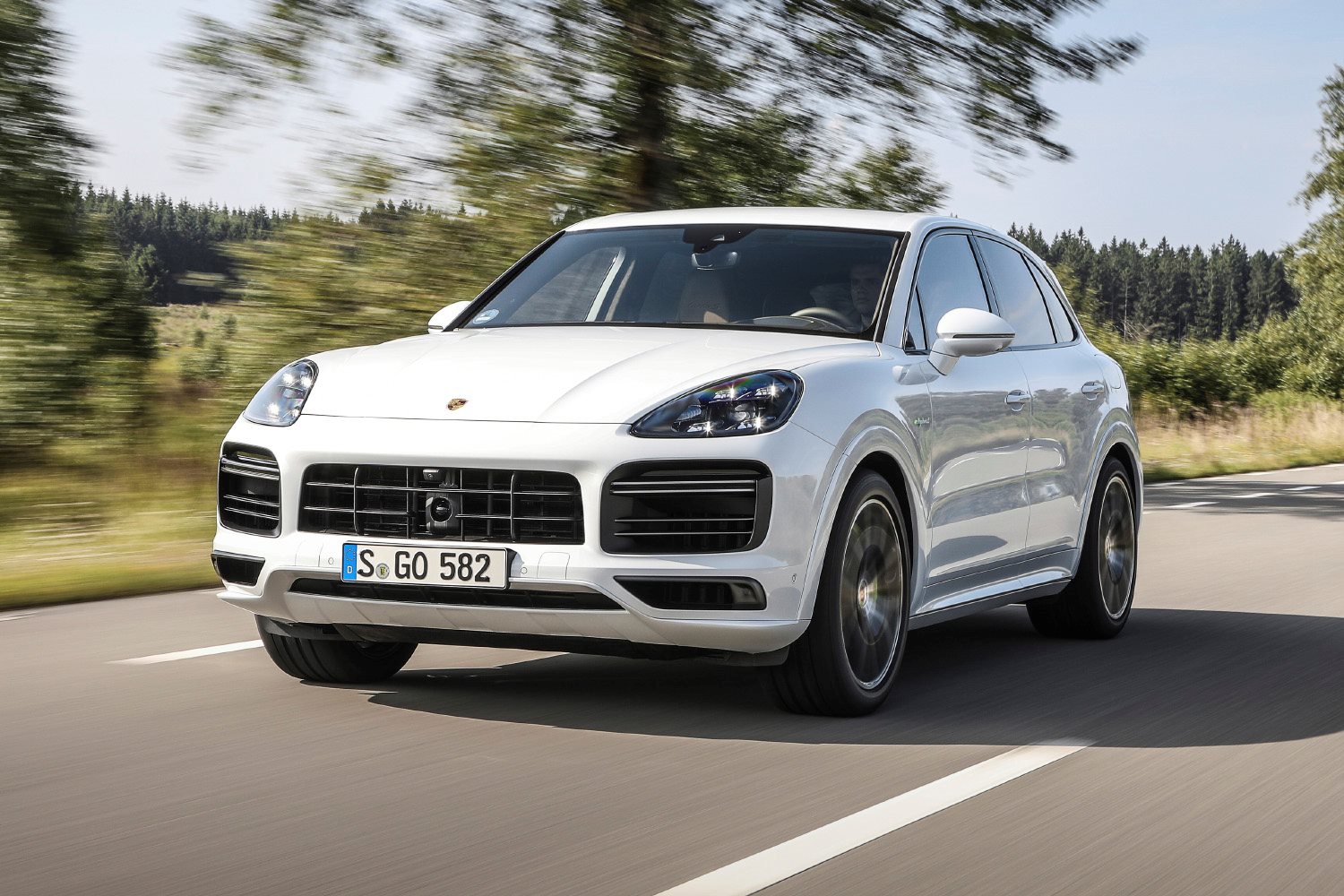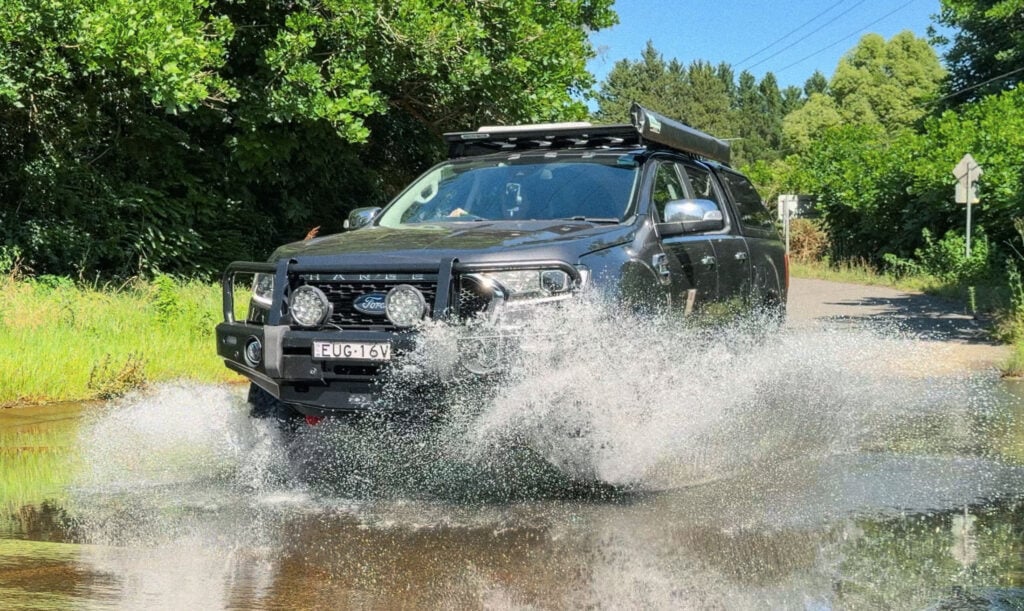Things we like
- Devastating pace
- Decent ride
- Classy interior
- It even handles too
Not so much
- Inconsistent brake pedal feel
- Noisy air vent positioned on B-pillar
- Whining tyres at speed
- Weight
The Wheels Verdict: The Porsche Cayenne Turbo S E-Hybrid is not an easy vehicle to initially warm to. Most of its rivals are big, unsubtle things that are difficult to miss but, I find, well worth the effort.
The Cayenne initially smacks of this ilk, an SUV bought by the unthinking type who just wants the most expensive one in the range. Spend a little more time with it and it emerges as an intriguingly considered thing and something with an endearing side to it. It’s hard not to like something that does virtually anything you ask of it, often with some measure of excellence too. Avoid the Coupe version and you’re onto a winner with this one.
WHAT IS IT?
How often have we wondered what would be the perfect one-car solution? Well, the Porsche Cayenne Turbo S E-Hybrid comes closer than most at covering every base. Of course, that decathlete ability comes at a price and most typically optioned cars will leave Porsche dealers comfortably north of $300K. Hugely powerful, beautifully equipped and even pretty good fun to steer, the Cayenne range-topper is a deeply impressive supersports-SUV.
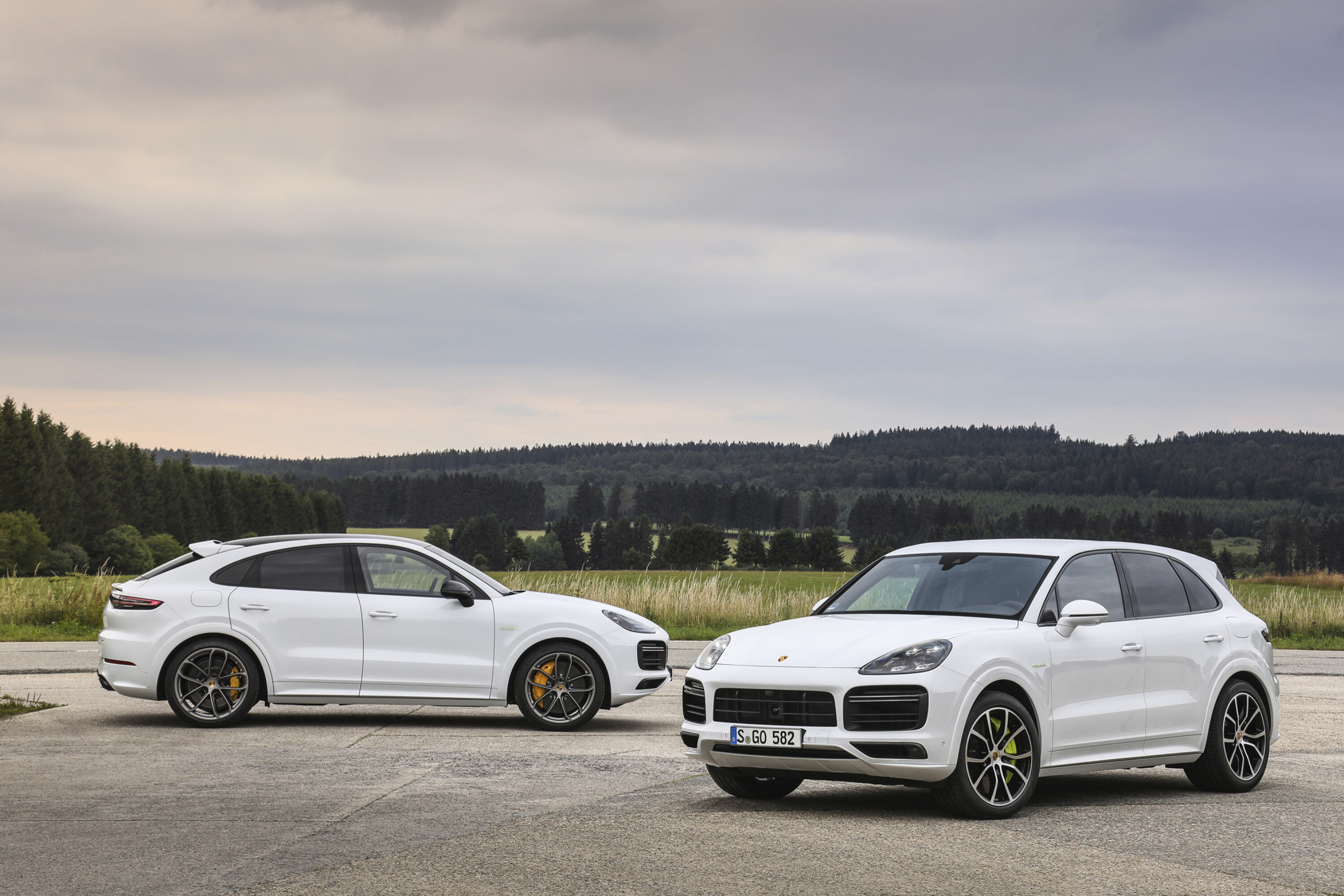
WHY WE’RE TESTING IT?
We flew to Germany and drove the Cayenne to Belgium on a mix of roads to establish not only whether this hybrid five-seat SUV delivers a credible cut-price challenge to the current crop of premium SUVs like the Bentley Bentayga and Lamborghini Urus, but also to see how it would hold its own against more traditional rivals from BMW and Mercedes-AMG.
Porsche Cayenne Turbo S E-Hybrid review
PORSCHE will sell you two versions of the Cayenne Turbo S E-Hybrid. One is the SUV body, the other the Coupe. I’m going to largely ignore the Coupe here because it’s heavier, slower, more expensive and, despite being longer and wider, has a more compromised rear seat and can’t carry as much gear in the back. So therefore, I’m going to credit Wheels readers with the ability to make sound choices.
Having dispensed with the issue of style versus substance, the next big question to answer is whether you should even bother with a Turbo S E-Hybrid version of a Cayenne SUV over its battery-free Turbo sibling. After all, you’re being expected to pay a premium of $46,400 for a vehicle that, in the real world, isn’t noticeably quicker, yet tips the scales at 315kg heavier. And the fuel economy benefits? Well, if you’ve reached the station in life where you can throw over a quarter of a million dollars at an SUV, are you really going to be wincing every time you visit a bowser? Probably not.
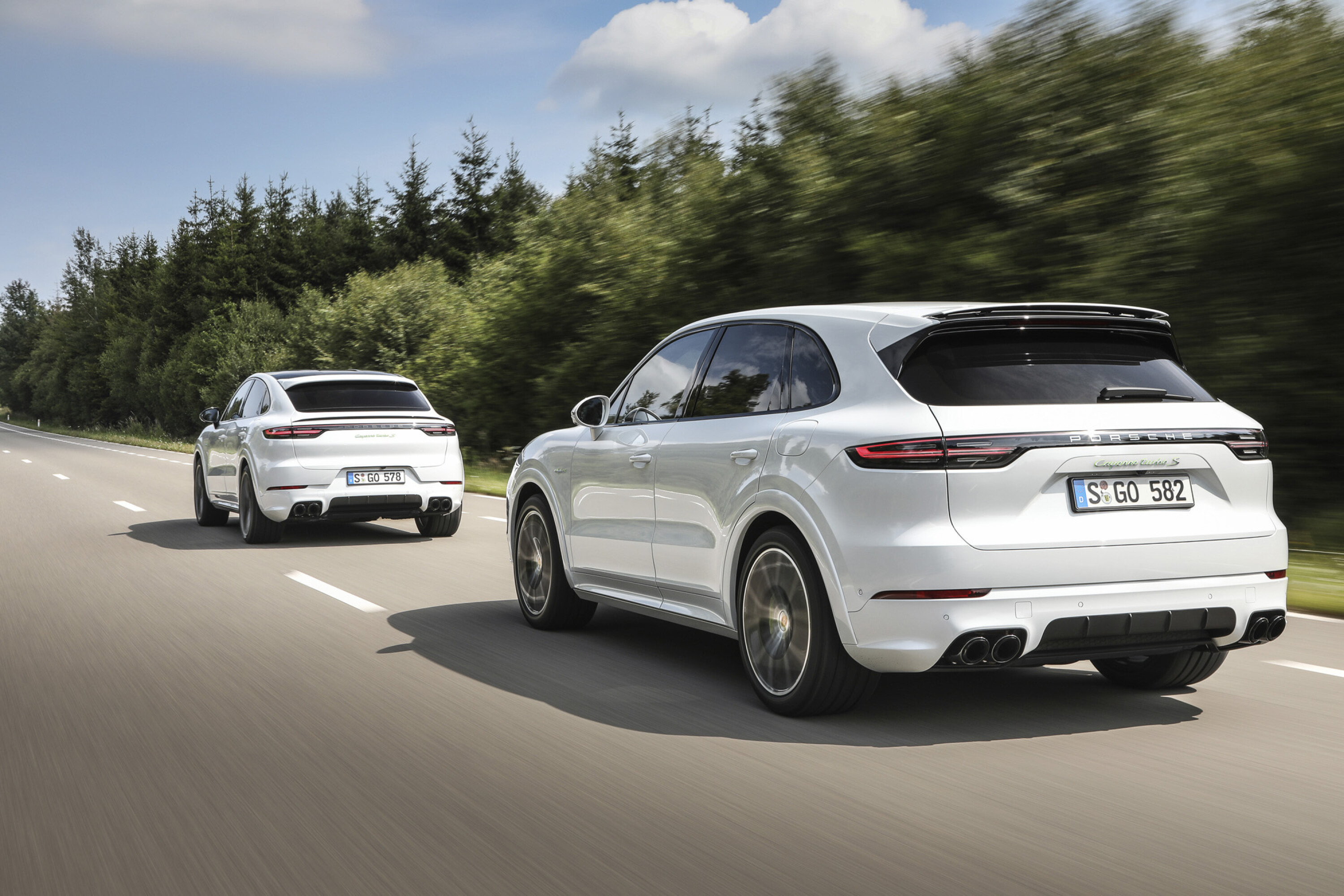
The Turbo S E-Hybrid does add some extra gear that you don’t get on the vanilla Turbo, such as surround view camera, lane change assist, four-zone climate control, panoramic sunroof, privacy glass, comfort access, ambient lighting and digital radio. The Coupe version additionally gains 22-inch RS Spyder wheels. Then there’s the fact that a number of global cities are moving to mandate emissions-free driving in their central business districts. You can probably expect the global heat death of the universe before Australia effects such changes, so that’s not really relevant to us. There is, however, something extremely soothing about running on pure electric power, and given that our average commute is 19km, you might well be able to cover the return trip to work on battery power alone. The Porsche will even handle freeway speeds in its E-mode, with the 4.0-litre V8 only thrumming back in at 135km/h.
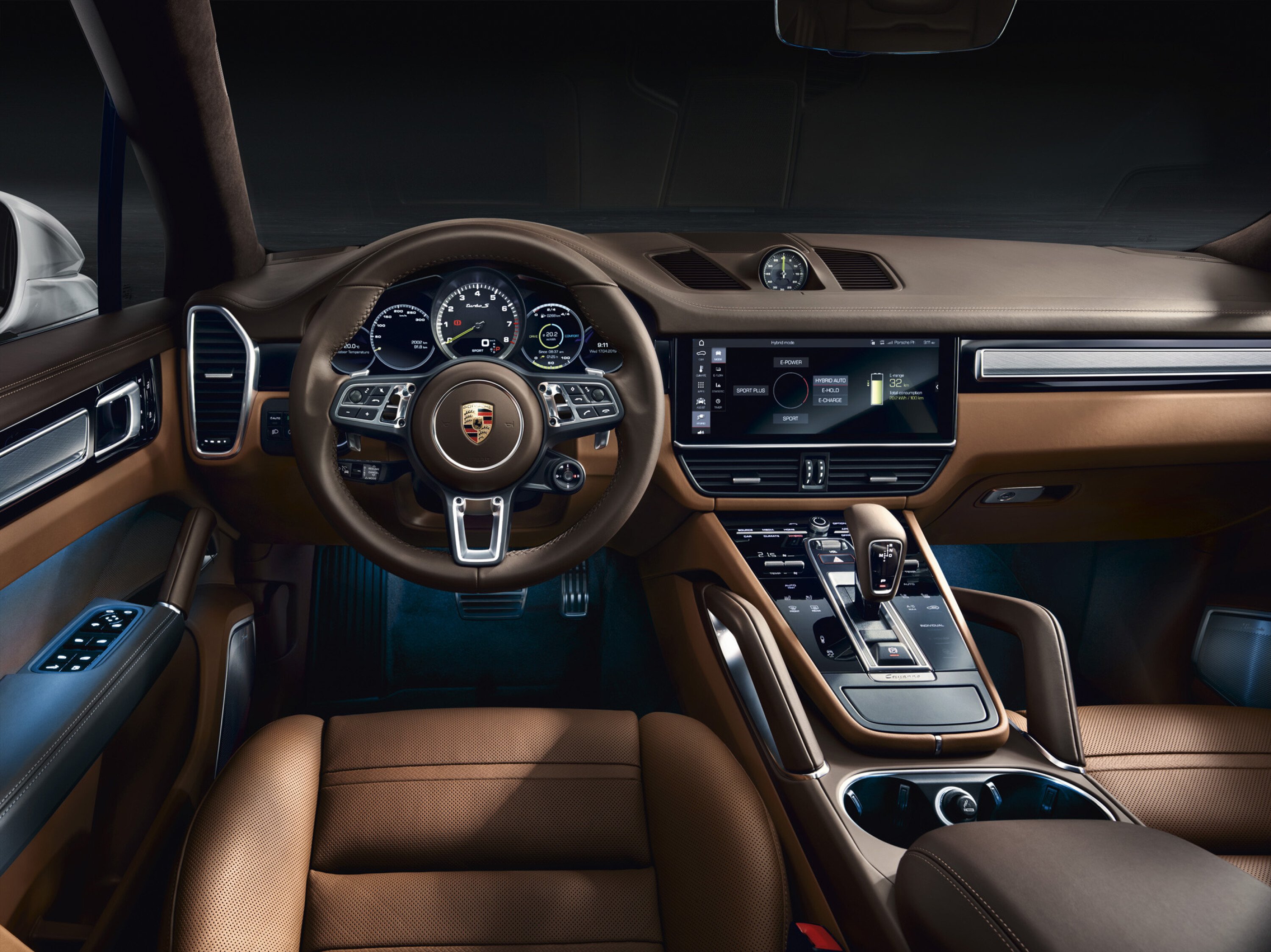
For keen drivers there are pluses and minuses to the electric power pack. Despite mounting the battery pack in the floor, you do feel the additional heft when transitioning from corner to corner. Porsche has employed all sorts of black magic to disguise the additional impost of 15 percent more weight over the Turbo. Instant electrically-assisted torque accelerates it quicker, carbon ceramic brakes stop it more effectively and then there’s the true voodoo: PDCC.
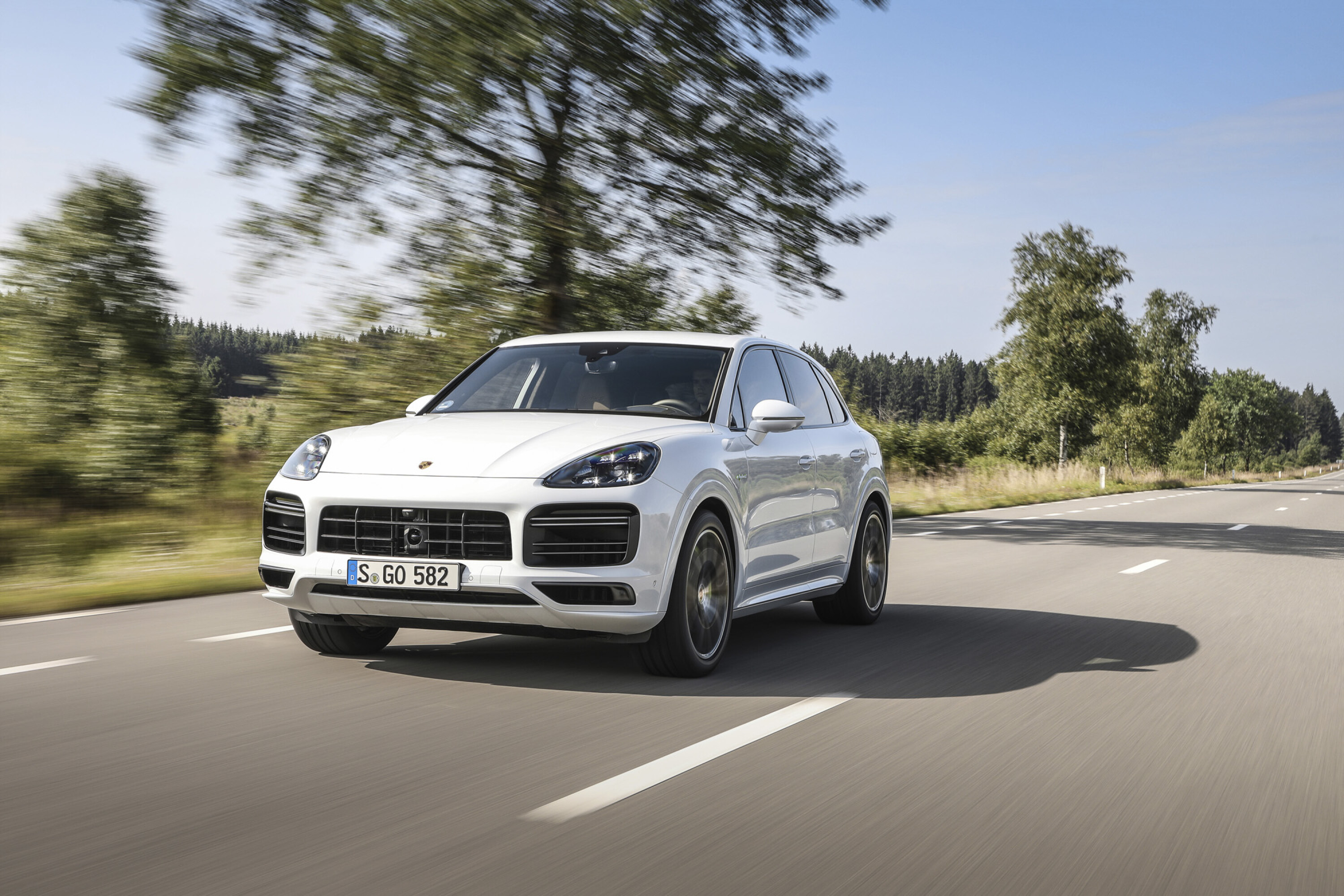
Porsche Dynamic Chassis Control is an active roll stabilisation system that splits the front and rear anti roll bars into two halves. As soon as it detects the slightest hint of body roll, a powerful pivot motor twists the two halves in opposite directions, effectively cancelling body roll. It has other tricks up its sleeve too. On straight roads it disengages, while in off-road mode it can twist the two ends in concert for greater wheel articulation. That said, we can’t see too many owners of this vehicle, with its liquorice-strip tyres, heading out bush. It’s no great wader either.
Given that it fronts up with almost double the power of an original 2003 Cayenne Turbo and, if we’re at it, more power than a McLaren F1, a Ferrari Enzo or a Lamborghini Huracan Performante, you’d expect the Cayenne Turbo S E-Hybrid to feel quick. And it does, without ever quite offering the hilarious theatrics of a Jeep Grand Cherokee Trackhawk, the only SUV currently on sale in Australia with more grunt. It’s not so much its demented step-off from zero that impresses the most, as we tend to expect that now. It’s the sheer relentlessness of the power delivery that sets this vehicle aside from many of its rivals. We had the benefit of some derestricted autobahn to see when the Cayenne would start to flag and it was still pulling cleanly at 270km/h, just 26km/h shy of its mandated top speed, before we had to slow for traffic. At speed, wind suppression is excellent, the steering tracks true and although there is some bump and thump from the three-chamber air suspension and a Stuka-like whistle from the Pirelli P-Zero tyres, the Cayenne felt utterly planted.
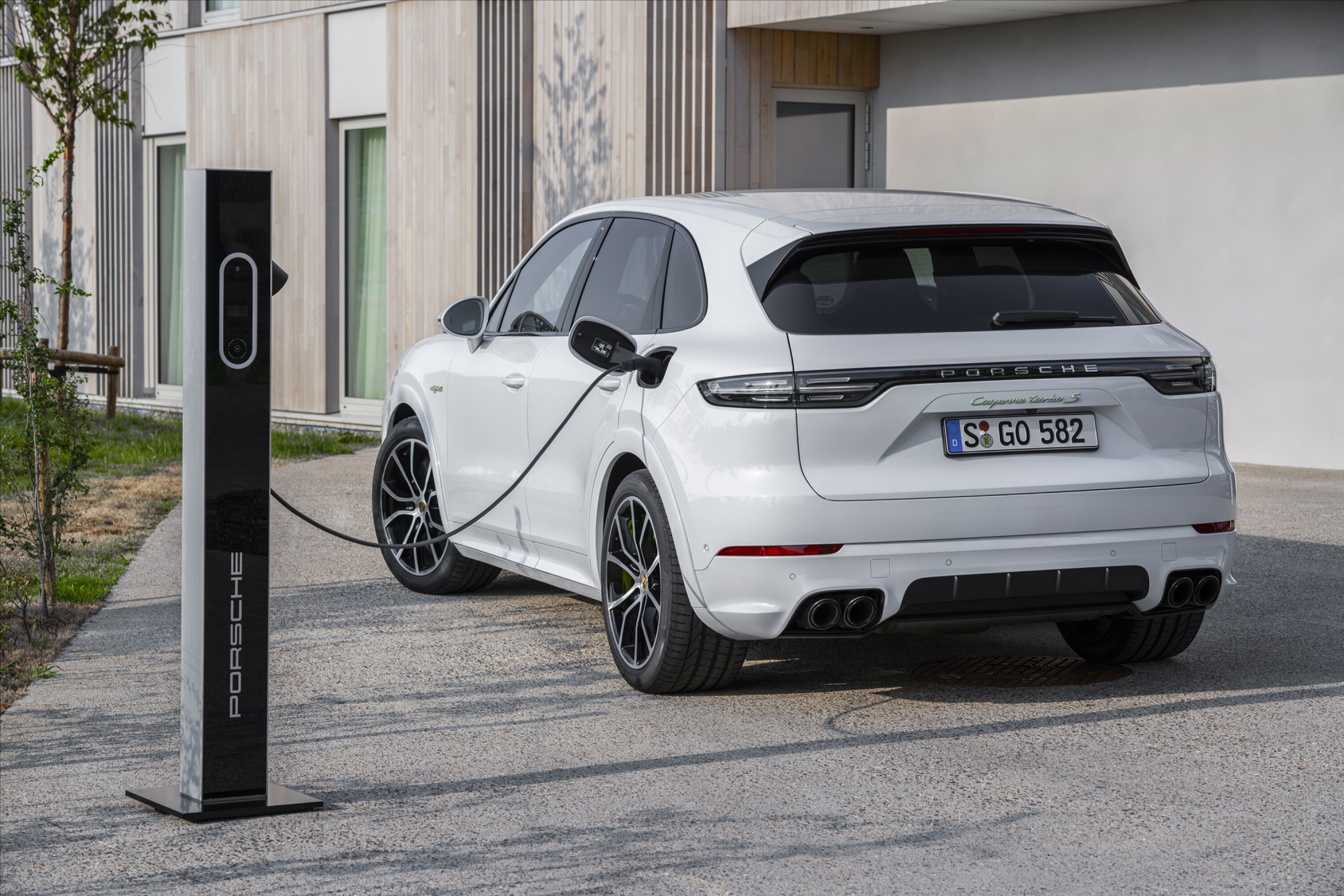
The test route was somewhat bereft of cornering opportunities, effectively diverting us around some of the Ardennes’ best driving roads, but the Cayenne’s steering felt accurate and well-weighted. It’s possible to make the Cayenne feel even more agile by ticking the option box for four-wheel steering, which reduces the turning circle from 12.1 to 11.5 metres. The calibration of the eight-speed automatic gearbox, especially with the vehicle in Sport or Sport Plus modes, is excellent and always delivered meaningful go on corner exits, while the carbon ceramic brakes cleave off speed with eye-watering power.
The brake pedal is a weird contrivance though, especially from a company that has made consistency of control weights a key differentiator. Because it has to marshal both braking recuperation to the battery pack as well as the friction braking system of the ten-pot front and six-pot rear calipers that chow down on vast discs, Porsche’s engineers have had quite the calibration job in delivering a natural feel. If I was being harsh, I’d say that they’d failed in that assignment because the pedal can feel dead at the top of its travel on occasions, but sharp to react in others. It’s the only significant dynamic flaw in the Cayenne Turbo S E-Hybrid’s make up but it’s likely to be one that could irritate Porsche purists.
It would irritate me and, were I spending my own money, I’d be tempted to buy the purely internally-combusted Turbo model and eschew the electric assistance. I’d be wrong though, and here’s why. There will be plenty of people who love the idea of a silent commute, 6-7 hours of home charging to replenish the batteries and then the same again. They’ll breeze past while I’d be standing in line at the servo, failing to resist the temptation of a Twirl four-pack. They’ll have a little smile on their face, knowing their residual values will have been future proofed to a certain extent against that day when we’re taxed out of our love affair with internal combustion. The Cayenne Turbo S E-Hybrid’s charms grow on you and you can forgive its minor flaws for its sheer effectiveness.
Porsche quotes a combined fuel economy figure of 3.7 litres per 100 kilometres for it, which means that you’ll be able to look down your nose in sheer disgust at fuel-slurping wastrels in base model Kia Picantos or Toyota Yarises. How do you put a price on that?
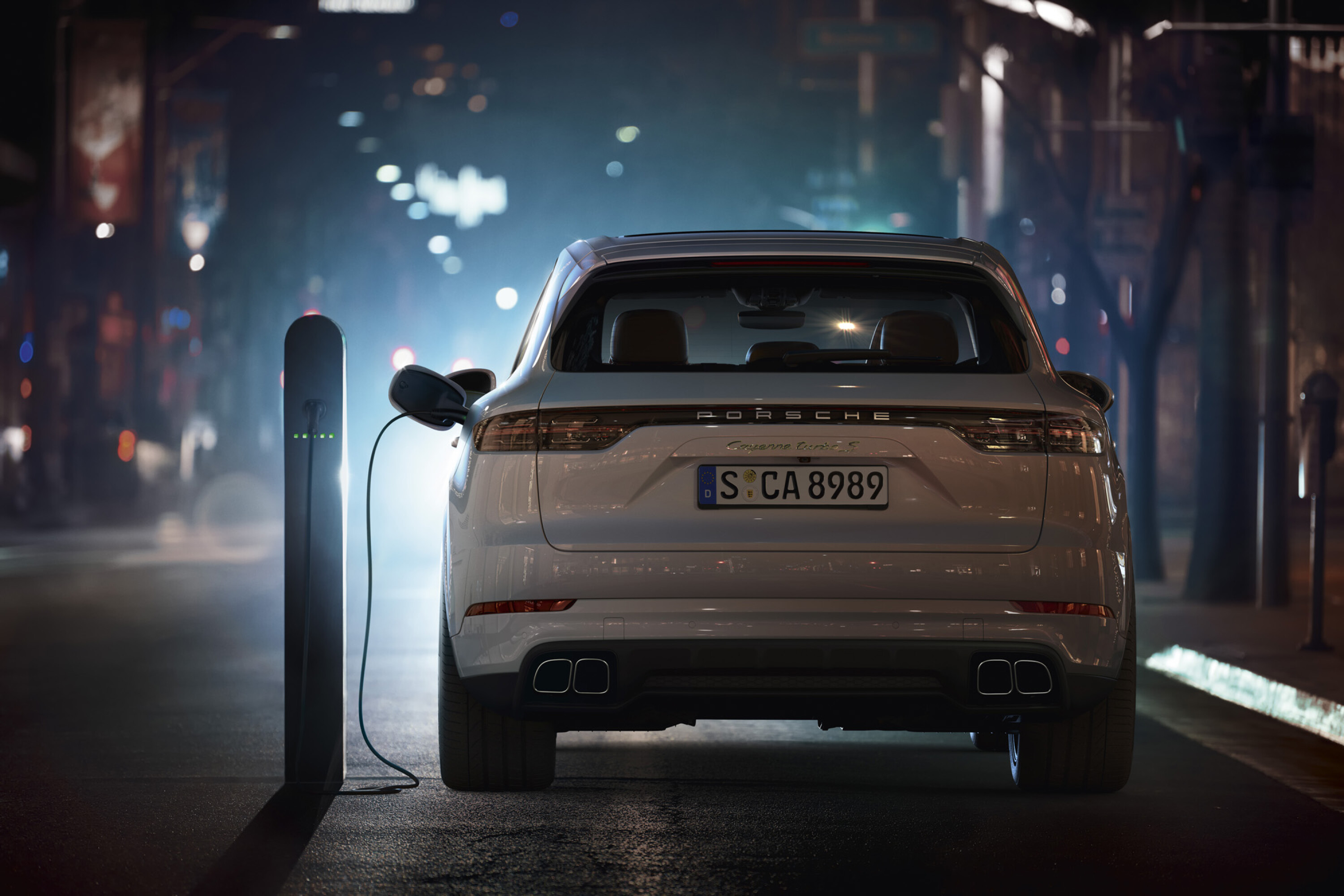
Porsche Cayenne Turbo S E-Hybrid vs rivals
Bentley Bentayga; BMW X5 M; Jeep Grand Cherokee Trackhawk; Lamborghini Urus; Mercedes-AMG GLE63 S; Tesla Model X Performance
Porsche Cayenne Turbo S E-Hybrid specs and pricing
- Model: Porsche Cayenne Turbo S E-Hybrid SUV
- Engine: 3996cc V8, 32v, dohc, twin-turbo parallel hybrid
- Max power: 500kW @ 5750-6000rpm
- Max torque: 900Nm @ 1500-5000rpm
- Transmission: 8-speed auto
- Weight: 2490kg
- 0-100km/h: 3.8 sec
- Economy: 3.7L/100km (combined)
- Price: $288,000
- On sale: Q4 2019
Things we like
- Devastating pace
- Decent ride
- Classy interior
- It even handles too
Not so much
- Inconsistent brake pedal feel
- Noisy air vent positioned on B-pillar
- Whining tyres at speed
- Weight


